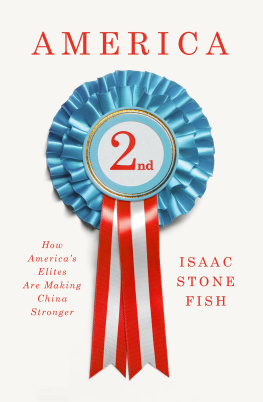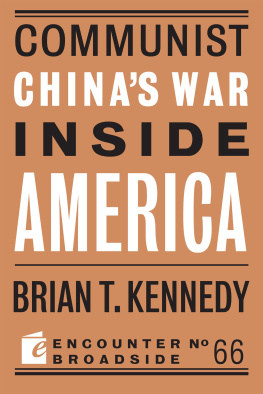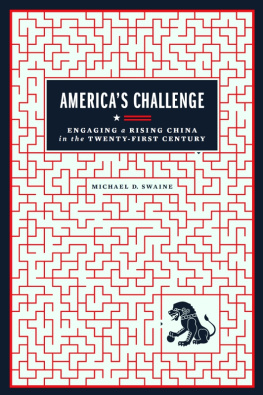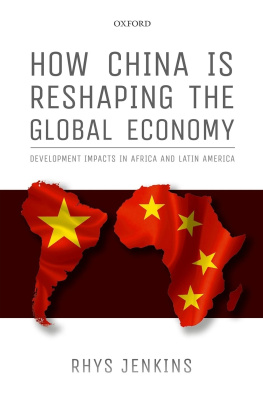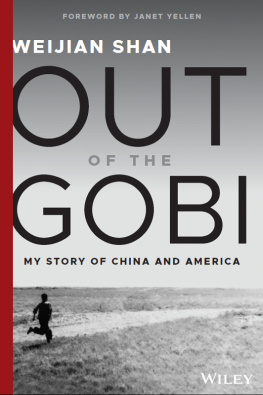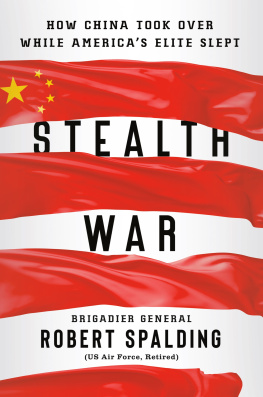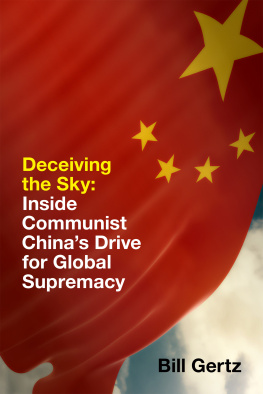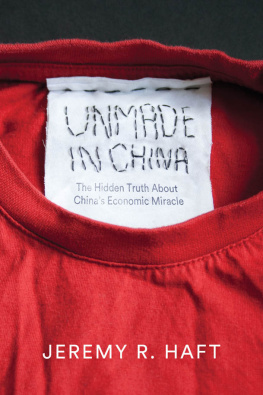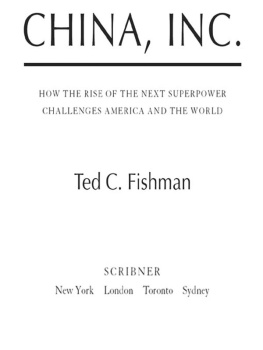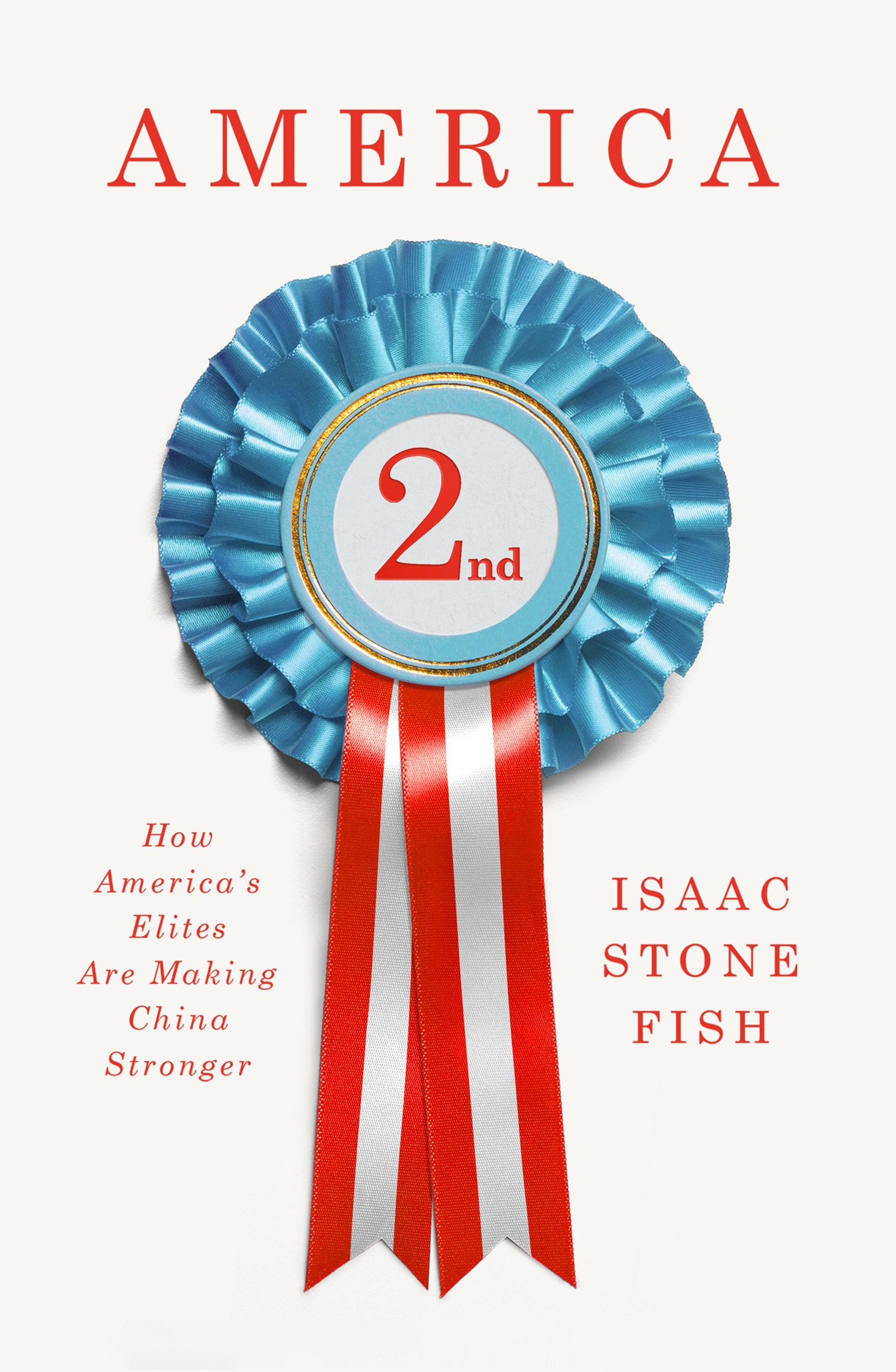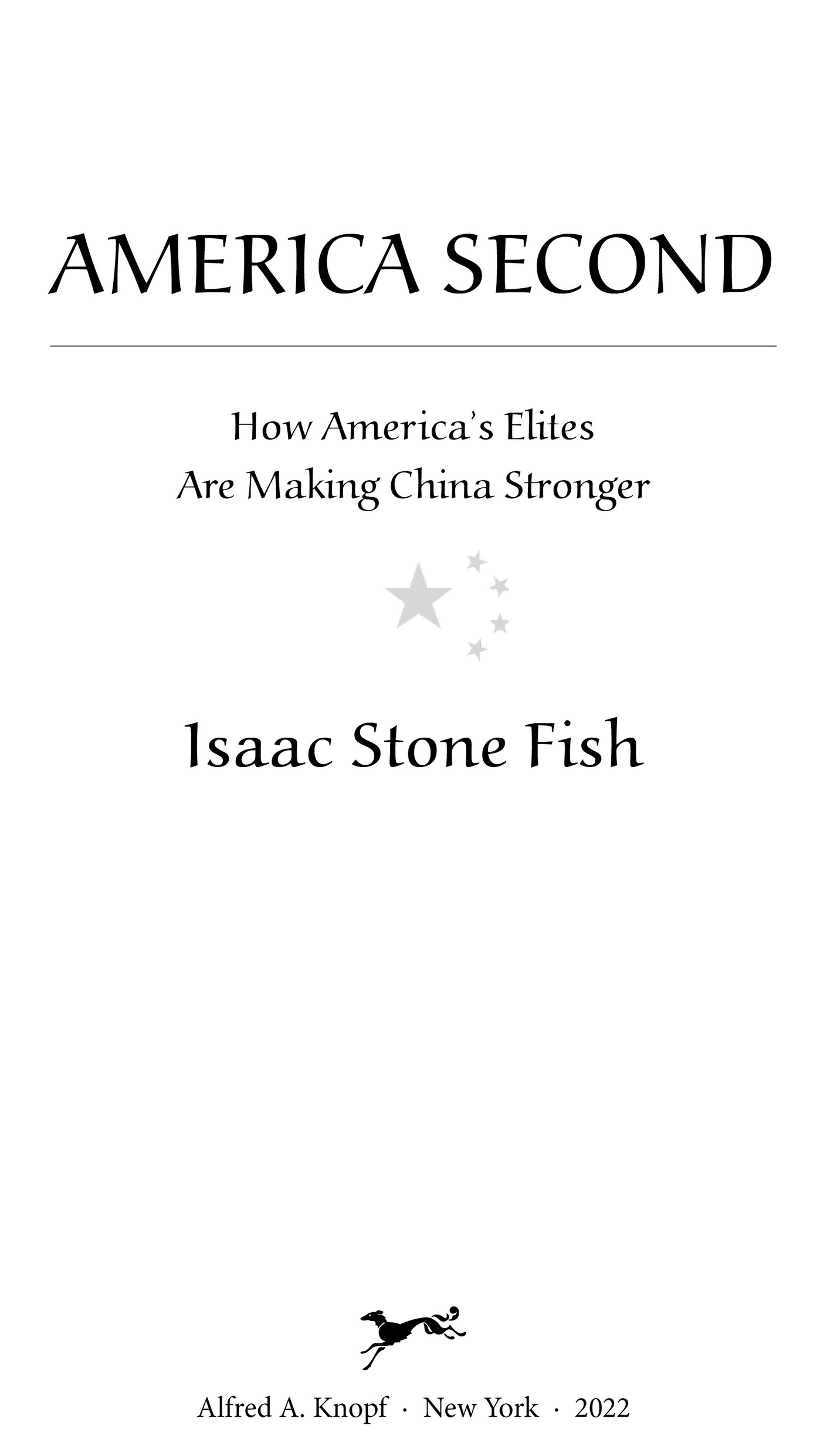Contents
Landmarks
Print Page List
THIS IS A BORZOI BOOK PUBLISHED BY ALFRED A. KNOPF
Copyright 2022 by Isaac Stone Fish
All rights reserved. Published in the United States by Alfred A. Knopf, a division of Penguin Random House LLC, New York, and distributed in Canada by Penguin Random House Canada Limited, Toronto.
www.aaknopf.com
Knopf, Borzoi Books, and the colophon are registered trademarks of Penguin Random House LLC.
Library of Congress Cataloging-in-Publication Data
Names: Stone Fish, Isaac, author.
Title: America second : how Americas elites are making China stronger / Isaac Stone Fish.
Description: First Edition. | New York : Alfred A. Knopf, 2022. | Includes bibliographical references and index.
Identifiers: LCCN 2021024242 (print) | LCCN 2021024243 (ebook) | ISBN 9780525657705 (hardcover) | ISBN 9780525657712 (ebook)
Subjects: LCSH: Political leadership. | FriendshipPolitical aspects. | United StatesForeign public opinion, ChineseHistory. | Public opinionChinaHistory. | United StatesRelationsChina. | ChinaRelationsUnited States. | United StatesForeign economic relationsChina. | ChinaForeign economic relationsUnited States. | United StatesRace relations. | ChineseUnited StatesHistory.
Classification: LCC JC330.3 .S86 2022 (print) | LCC JC330.3 (ebook) | DDC 303.3/4dc23
LC record available at https://lccn.loc.gov/2021024242
LC ebook record available at https://lccn.loc.gov/2021024243
Ebook ISBN9780525657712
Cover photograph Peter Dazeley / The Image Bank / Getty Images
Cover design by Tyler Comrie
ep_prh_6.0_139149577_c0_r0
To my grandma Sandy,
who taught me that sharks dont sleep
Contents
Introduction
Consider Grindr. Yes, that Grindr, the dating and hookup app that revolutionized gay culture in America. In January 2018, the private Chinese technology firm Beijing Kunlun acquired Grindr. The Chinese government will not have access to your account, Grindr said in a May 2017 blog post. Beijing Kunlun is not owned by the Chinese government. Indeed, Kunlun is a private company, and its founder, Zhou Yahui, is known in China mostly for having amassed enough wealth to have spent $1.1 billion on a divorce. Hes not seen as especially beholden to the ruling Chinese Communist Party.
But Grindr was lying. Because a Chinese company owned all of Grindrs data, photographs, and messages, the Party could access all of that information, regardless of where its stored. And that data includes compromising photos and messages from some of Americas most powerful mensome openly gay, and some closeted. Couple this with Chinas continued innovations in facial recognition, an industry more advanced there than in the United States, and there are some fascinating and concerning national security implications. Crudely put, Beijing could now access the dick pics of millions of Americans. In 2011, the then U.S. congressman Anthony Weiner tweeted a lewd photograph, setting off a chain of events that led to his 2017 imprisonment. Beijing can blackmail a closeted congressman who does not want to be Weiner 2.0.
In many ways, Grindr under Chinese ownership was a disaster. Grindrs new president, Scott Chen, was a terrible fit for the culture; he even announced on Facebook that he opposed gay marriage. While its unknown if the Chinese government has accessed Grindr data, Reuters found that Grindr gave Beijing-based engineers access to the personal informationincluding private messages and HIV statusof millions of Americans. In March 2019, amid growing unease about Beijings influence in America, the government body, the Committee on Foreign Investment in the United States (CFIUS), ordered Kunlun to unwind the deal. A year later, Kunlun sold Grindr to an American investment firm. National security types rejoiced.
But the story doesnt end there. Grindrs ties to Beijing still jeopardize the privacy of everyone who uses the app. An investment group called San Vicente Acquisition LLC, formed just weeks before the Kunlun deal, now runs Grindr. James Lu, the chairman of the board of Grindr, as of August 2021 is also the chairman of a Chinese investment firm majority owned by a Chinese city government. A recent Norwegian government report found that Grindr still shares data with the tech giant Tencent, a Chinese company with close ties to Beijing. Meanwhile, Grindrs user base keeps growing: from 3.8 million active daily users in 2018 to more than 4.5 million in 2020. Kunlun, which had paid $245 million for its 98 percent stake in Grindr, sold the firm less than three years later, for $608 million: an impressive gain. All of this is despite Grindrs abysmal privacy controls. Not going to sugar coat this, Mozilla Foundation researchers wrote in a February 2021 review of twenty-four popular dating apps privacy and security. Of all the dating apps we reviewed, Grindr is the worst of the worst. Unlike TikTok, the Chinese-owned viral video app, Grindr collects information about its users that couldnt be more personal.
Grindr in 2022wholly owned by an American firm and vetted by CFIUSis more of a security threat than it was several years ago.
Questions like those raised by the Grindr saga are being asked in boardrooms, Hollywood studios, government offices, and universities across America. How much access to the American market should Chinese firms get? Are private Chinese firms more or less dangerous than state-owned ones? How did American entities get so entangled into the Chinese system? How worried should we be about those who willingly or unwillingly aid the Party in America? Grindrs chairman is Chinese American. How does one address the issue of problematic ties to Beijing without stigmatizing or discriminating against Asian Americans? How do we stop Americans from spreading Party propaganda without impinging on their freedom of speech? Does the economic benefit of partnering with Chinese institutions outweigh the political and national security costs? And most important, where should we draw the line?
America Second is a book about the pernicious aspects of the Partys influence in America. And its a book about how to fight back without being Trumpian or racist: tactics like exposing unethical and illegal U.S. corporate behavior in China, partnering with American allies, educating Americans about threatening Party ministries like the United Front, restricting American institutions ability to support the genocide in Xinjiang, and not stigmatizing Chinese Americans. For decades, Beijing successfully incentivized many elite Americans to strengthen China at the cost of America. In targeted and sophisticated ways, American policy needs to remove those incentives. And it needs to contain China, and weaken the Partys global influence.
Im pro-China (inasmuch as one can be for or against any country, especially one as massive and multifaceted as China). I lived in China for six years: mostly in Beijing, but also in Shanghai, Hong Kong, and the northeastern city of Harbin. Ive visited all of its twenty-two provinces, its four municipalities, its five (questionably named) autonomous regions, including Xinjiang and Tibet, the special administrative regions of Hong Kong and Macau, and the country of Taiwan, which Beijing has long disingenuously claimed. But I am anti-Party. I would love to live in China again, and when the Party is finally excised from leadership, perhaps I will.

